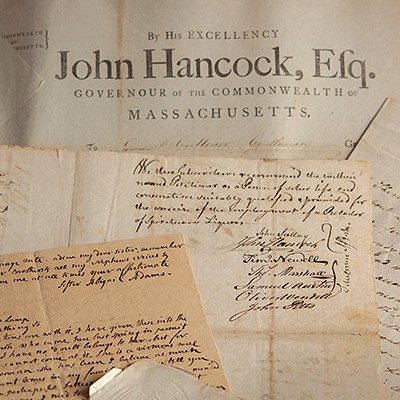Otto Frank Letter Signed on Anne Frank and German Concentration Camps
Two ways to bid:
- Leave a max absentee bid and the platform will bid on your behalf up to your maximum bid during the live auction.
- Bid live during the auction and your bids will be submitted real-time to the auctioneer.
Bid Increments
| Price | Bid Increment |
|---|---|
| $0 | $5 |
| $50 | $10 |
| $200 | $25 |
| $500 | $50 |
About Auction
Jul 12, 2023
RR Auction support@rrauction.com
- Lot Description
Father (1889-1980) of Jewish World War II diarist Anne Frank, and the only member of his family to survive the concentration camps. LS in German, three pages on two sheets, 5.25 x 7.5, July 17, 1957. Letter to Mrs. Losa, in full (translated): "Your letter dated July 10 was forwarded to me and since your inquiry seemed urgent, I will hurry to answer your questions right away.
1. When we emigrated from Frankfurt, Anne was 4 years old and spoke German fluently. We adults generally spoke German among ourselves, while the children spoke Dutch among themselves. Anne's written German (spelling) was not flawless, however.
2. All the fairy tales and stories have been preserved, two of them are included in the German Fischerausgabe [Fischer Edition] and were published in Holland under the title 'Weet je nog?' [You still remember?]. While still living in hiding, one just would not have taken the risk of publishing any of it, not even under a pseudonym.
3. On September 3, 1944, all of us 8 who had been living in hiding were taken from the Dutch Westerbork on the last transport leaving for Auschwitz in the East. In early November, Anne and Margot were taken from there to Bergen-Belsen.
4. It was never clearly established who it was that had betrayed our hiding place.
Of course I would prefer if the translation could be made from the original Dutch. I assume, however, you will be translating from the German version. If that is the case, the Fischerausgabe should be used as basis, since their, various translation mistakes contained in the Lambert Schneider Edition had been revised.
The agent of the authors (A. & F. Hackett) holds exclusive rights to the theater play. The agent's name is: Mrs. Leah Salisbury, 234 W. 44th St. New York. It is evident from your letter that you are taking great personal interest in this matter and I thank you for all the effort you are putting into your work. I would be glad to provide any further information you desire, or make photographic material available to the publisher, if needed. Wishing you much success with your work, I remain with best regards." In fine condition.
Frank and his family hid from the Nazis in a secret room in Amsterdam for a little over two years, during which time his daughter Anne maintained her now-famous detailed diary and papers. In this superlative letter, Otto explicitly tells crucial details of the family's nightmare and his daughter's writing. Captured and separated after an anonymous tip—the revealer of which, he admits, was never identified—the family was taken "on the last transport leaving for Auschwitz," and separated again in November when the daughters were taken to Bergen-Belsen. The only surviving member of the family, Otto was given Anne's writing in the summer of 1945, and after careful thought and editing it, was transcribed and published in Dutch in 1947; it has since been translated into six languages and published in countless nations around the world. This letter, full of firsthand biographical notes, shows Frank's insistence of accuracy to all details for public knowledge, along with a father's devotion to keeping his daughter's work and legacy intact, which would expand beyond her published diary to a Pulitzer Prize-winning play and critically acclaimed film. - Shipping Info
-
Bidder is liable for shipping and handling and providing accurate information as to shipping or delivery locations and arranging for such. RR Auction is unable to combine purchases from other auctions or affiliates into one package for shipping purposes. Lots won will be shipped in a commercially reasonable time after payment in good funds for the merchandise and the shipping fees are received or credit extended, except when third-party shipment occurs. Bidder agrees that service and handling charges related to shipping items which are not pre-paid may be charged to a credit card on file with RR Auction. Successful international Bidders shall provide written shipping instructions, including specified Customs declarations, to RR Auction for any lots to be delivered outside of the United States. NOTE: Declaration value shall be the item’(s) hammer price and RR Auction shall use the correct harmonized code for the lot. Domestic Bidders on lots designated for third-party shipment must designate the common carrier, accept risk of loss, and prepay shipping costs.
-
- Buyer's Premium



 EUR
EUR CAD
CAD AUD
AUD GBP
GBP MXN
MXN HKD
HKD CNY
CNY MYR
MYR SEK
SEK SGD
SGD CHF
CHF THB
THB













